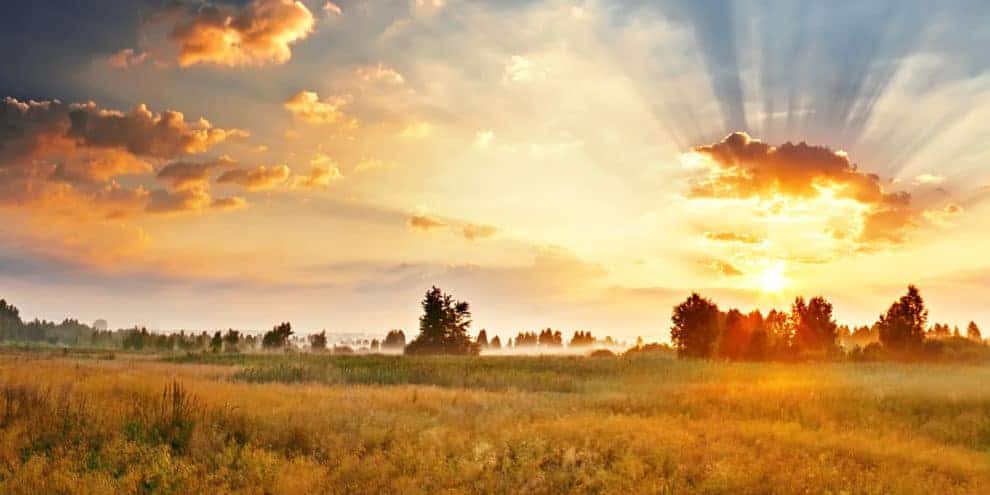On the way home from school last Friday, my son JD, asked me “What is wrong with buying a property that already has a conservation easement on it?” You may think that is an odd question for a 12 year old to ask, but around my house we talk about land all the time.
The previous week he had been riding with me in the truck as I was on a Bluetooth phone conversation with a client who was considering a property that already has an easement in place. The client asked me essentially the same thing, “What is the downside to purchasing a property that already has an easement in place?” I answered, “It’s kind of like ordering a milkshake, and someone else gets to drink the milkshake and you get to keep the cup. Somebody else has already gotten all the ‘goodie’ out of it.”
That is an over-simplification of purchasing a property with an easement in place, but it makes the point nicely. As long as the prospective buyer goes into the purchase knowing that he is only getting the cup with no milkshake, then that is acceptable.
Conservation easements, by design, involve a property owner donating some of the rights associated with their ownership to a land trust or conservation entity in perpetuity, usually in exchange for some tax benefit. These easements are generally binding on a property forever, or at least some protracted amount of time. I am not an attorney, accountant, or tax professional so I will leave it to them to give advice about exactly how an easement would work for your situation.
Here are some suggestions about doing your due diligence on a property you are considering purchasing that already has a conservation easement in place:
1. Ask for a copy of the paperwork associated with the easement donation. You need to know everything you can about what rights were donated and what rights the landowner retained. There are some rights, that when extinguished, may not adversely affect what you would want to do with a particular property. If the rights to develop a subdivision were donated, but you would only want the property for a personal getaway, then it may not be a deal breaker. You may still be able to hunt, fish, or manage the timber and that be acceptable to you.
2. Determine what rights are extinguished and for how long they are extinguished. Conservation easements can involve a seemingly endless amount of rights that can be donated to the land trust. Your ownership rights will certainly be encumbered, you just have to determine to what extent and if you are willing to accept those limitations of your use.
3. What are the penalties associated with failing to adhere to or violating the terms of the easement?
4. Find out who is the land trust that will monitor the easement. A conservation easement is donated to a land trust that will monitor the property on an ongoing basis to ensure compliance with the terms of the donation agreement. It would be prudent before making a purchase on a property to go meet with personnel at the land trust to find out about the process for how they will do their annual audits and site visits. You will want to make sure that you can reasonably get along with the entity that will be monitoring your activity on your property from now on. You are essentially married to the land trust for as long as you own the property.
5. Have an attorney that understands conservation easements review the documentation for you. Conservation easements have many pieces, and it may take some expertise to understand how they all fit together and how that relates to you. Before making a land purchase, get the counsel you need to make the best decision possible.
Properties with conservation easements in place often sell for a price that seems like a bargain. You must understand that what you are purchasing is not the full bundle of rights associated with a typical land purchase. You must spend more time investigating what is included and excluded before you make this type of purchase.
Conservation easements are a great tool to protect a property, help mitigate some of your tax liability, or both. Determine what are the limitations and obligations imposed by the easement and if those are compatible with your ownership objectives. Going into a land purchase of a property with an existing easement with a comprehensive understanding of the property, the easement, the entities involved, and what is expected to maintain compliance is essential to ensuring a positive outcome.
This content may not be used or reproduced in any manner whatsoever, in part or in whole, without written permission of LANDTHINK. Use of this content without permission is a violation of federal copyright law. The articles, posts, comments, opinions and information provided by LANDTHINK are for informational and research purposes only and DOES NOT substitute or coincide with the advice of an attorney, accountant, real estate broker or any other licensed real estate professional. LANDTHINK strongly advises visitors and readers to seek their own professional guidance and advice related to buying, investing in or selling real estate.










Very well written and thought out Jonathon. A conservation easement can greatly reduce the value of a property or may have little effect on the value. As the old saying goes “The devil is in the details”. One thing I do know is that even the least obtrusive limitations normally have a negative impact on value. In my opinion there is a stigma associated with properties encumbered with a conservation easement that is a result of the buying public having heard horror stories about other CEs. If you are an agent marketing a property encumbered with a conservation easement you should make it clear in your advertising that the encumbrance exists.
I recently had a former client list a very good tract of land with a competitor because he would not consider the market value of the property after the easement was put in place. A competitor listed the property at a price that was high if it didn’t have the easement. And the advertising does not mention the easement.
All you knowledgeable agents who deal in recreational hunting and timber tracts would be wise to print a copy of Jonathon’s article and keep it in your truck to counsel with Sellers that have these properties.
All good advice Jonathan. So true there is much stigma associated with these properties, and unfortunately such missed opportunity.
From a positive perspective, you could say that buying conservation land is like buying a diet milkshake – all the flavor without all of the fat. With the development rights out of the equation, and the high cost of land associated with them off the table, you’re left with a great opportunity for someone who wants to buy recreational land affordably. Why pay for the development rights if you have no intention of developing it?
The biggest market for these tracts are young urban professionals looking for their own private getaway for hunting, camping, fishing, organic gardening, and other nature pastimes, and they typically have the cash on hand. They are attracted to the conservation aspect (green living), getting unplugged, and to the partnership with the land trust.
Not only is the purchase price for conservation land typically reduced by an average of 50%, but holding costs of conservation lands are taxed lower than land taxed on its development value. Lands under conservation easement have lower estate values and therefore reduce the likelihood that the land will be sold to pay the estate taxes, but kept in the family for generations to come.
These tracts can be great opportunities for the land connoisseur to own a private nature preserve, and the land trust will help you manage and protect it. Just like restrictive covenants in a residential neighborhood, the restrictions are there to protect the value of what you are buying into – in this case, the natural intrinsic values – forests, wildlife, wildflowers, clear water. Know what the restrictions and reserved rights are, make sure they are a good fit for your land-use vision, be prepared to adhere to them, and you’ll live in harmony with the land for many years to come.
As Jonathan cautions, like anything else, know what you’re buying, get an attorney to review the documents with you. Also meet the land trust and ask questions/tell them your plans for the land (make sure they are accredited) and get an appraiser experienced in conservation easement valuations to appraise it.
Landowners holding large tracts of land for private recreation and enjoyment may have the last laugh when all of the larger tracts are developed. They’re not making any more land, so conservation lands will rise in value over time as large tracts with native landscapes become scarce.
Great article!
So we are talking about hunting land, land for hunting only. With easement, OK, the cup/milkshake idea is one way to look at this easement land. But if it is truly hunting land there is little that and easement will do to stop you from hunting ducks or deer. You control who hunts or doesn’t, or what is game is hunted. If you plan on farming your hunting land, sorry, better not drain or fill the wet lands, just not part of the program with a easement.
Yes you give up rights but there are some of us farmers that just want to set aside some land for wildlife and a easement is a near perfect tool to get that job done.